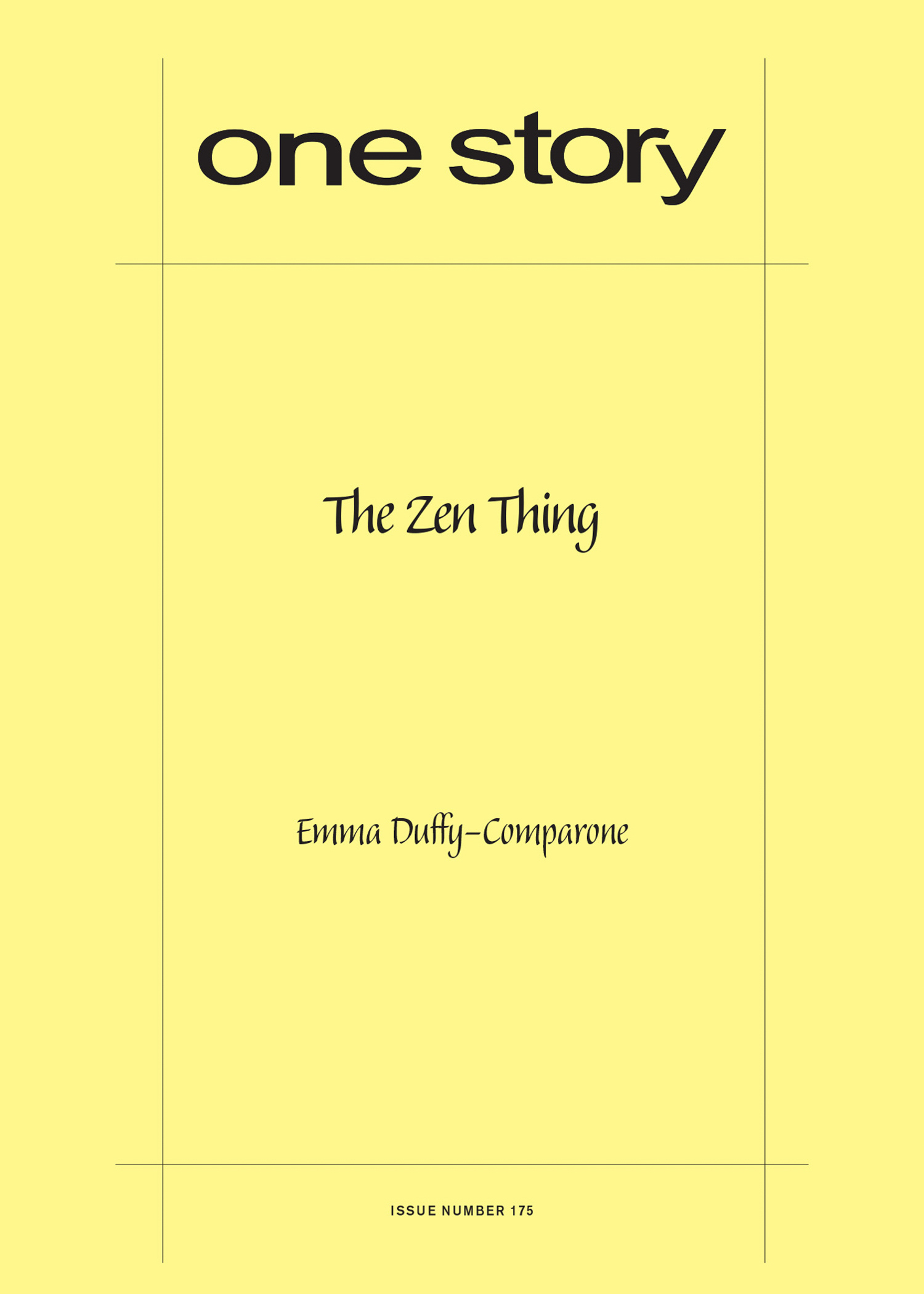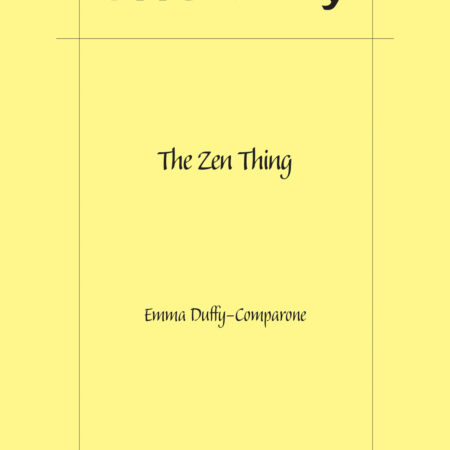
The Zen Thing
$2.50
36 in stock
Excerpt
Each year, like a shifty circus in a truck, the family unpacks itself for a weekend on a beach and pretends to have a good time. This summer they are in Rhode Island, on Scarborough Beach. Everyone is staying at the Sea Breeze Motel down the street. Expectations are low. It is the kind of setup where doors open to a courtyard, which is carpeted. In the middle of the carpet is a pool. In the middle of the pool, submerged, are a bikini bottom and a bloated swimming noodle, which has somehow drowned like a piece of plumbing pipe.
Billy, Anita’s brother, who is thirteen and has Down syndrome, has spent the morning dipping a red bucket into the pool and watering all of the plastic plants with it: the scheffleras in the corner, and a few palms slouching under the exit signs. He wears an industrial measuring tape clipped to his bathing suit and has measured the diving board several times and the circumference of the doorknobs to their rooms. Anita adores Billy.
“He’s really into maintenance these days.” Anita’s mother sighs. “And breasts.”
Emma Duffy-Comparone
Emma Duffy-Comparone is a recent graduate of the Boston University MFA program and has received a work-study scholarship in fiction from the Bread Loaf Writers’ Conference. “The Zen Thing” is her first published story. She has stories forthcoming in The Southern Review and The American Scholar.
Q&A by Will Allison
- WA: Where did the idea for this story come from?
- ED: I had recently gone to my boyfriend’s family reunion in Narragansett. On level land, it was awkward in an average way, but once we started slamming down beach chairs, things got ugly fast. I started to wonder about that: families, and unveilings. So I thought of something Very Awkward and then put everyone in a bathing suit.
- WA: What was the most challenging aspect of writing this story?
- ED: Usually, I write and delete, write and delete, and buck down the road like that. But I had procrastinated for a deadline in a bad way. So I guess having to change my “process” (process—who am I kidding? I haven’t written long enough to have a process) was a challenge, in that I couldn’t get precious about every sentence.
- WA: And the most satisfying aspect?
- ED: Well, flipside of that coin was, I guess, finishing something in so little time. Makes you want to sort of slap your hands together. I had also never written a one-act, so to speak—some of my stories span years—and there was something satisfying about making life play out in real time.
- WA: This story takes place in New England—specifically, on a beach in Rhode Island—and has a very New England feel. How important is place in your stories?
- ED: Most of my stories take place in New England, but it’s a default location more than a conscious decision. Though I do think there is something about New England that can make a person a bit sensitive, a bit brittle. You can feel—or at least I can feel—sort of jerked around by the seasons. And the ocean, well: I grew up on the coast, and I can’t stay away.
- WA: Can you tell us a little about the title?
- ED: Aside from the more obvious problems with her relationship, what seems most difficult for Anita to reconcile is the future. Sure, she could get hit by the proverbial bus tomorrow, but with that kind of age difference there’s a weight, a darkness—a time frame—that at some point she’d have to stare down. I think learning how to love like that demands a certain ability to live in the moment.
- WA: There are ten characters in this story, plus a couple more offstage. What’s the secret to juggling such a large cast in such a small space?
- ED: It was more of an accident, to be honest—if I looked ahead too far, I started to panic. Instead of taking time to map out what would happen next, or decide what exactly the story was about, I just added another character, or another interaction, hoping that if I ran the story out long enough, it would find its way by morning. It was a bit of a gamble.
- WA: In writing this story, were you consciously influenced by any other authors or works?
- ED: Not consciously. I tend to dip into poetry when I’m writing a story—I often find myself dancing around a point, and it’s helpful to check in with a poet’s capacity for economy, for directness.
- WA: How long did it take you to complete this story?
- ED: I wrote this in a night about a year ago, and only for One Story (!) did I open it back up and begin to fiddle.
- WA: What are you working on now?
- ED: I have a collection, give or take, and a blank page of a new story called New Story. It’s on my desktop, and it’s very scary.
- WA: What is the best bit of advice about writing you have ever received?
- ED: Stick to what people say and do. I don’t always heed that advice, but it certainly sounds good.
